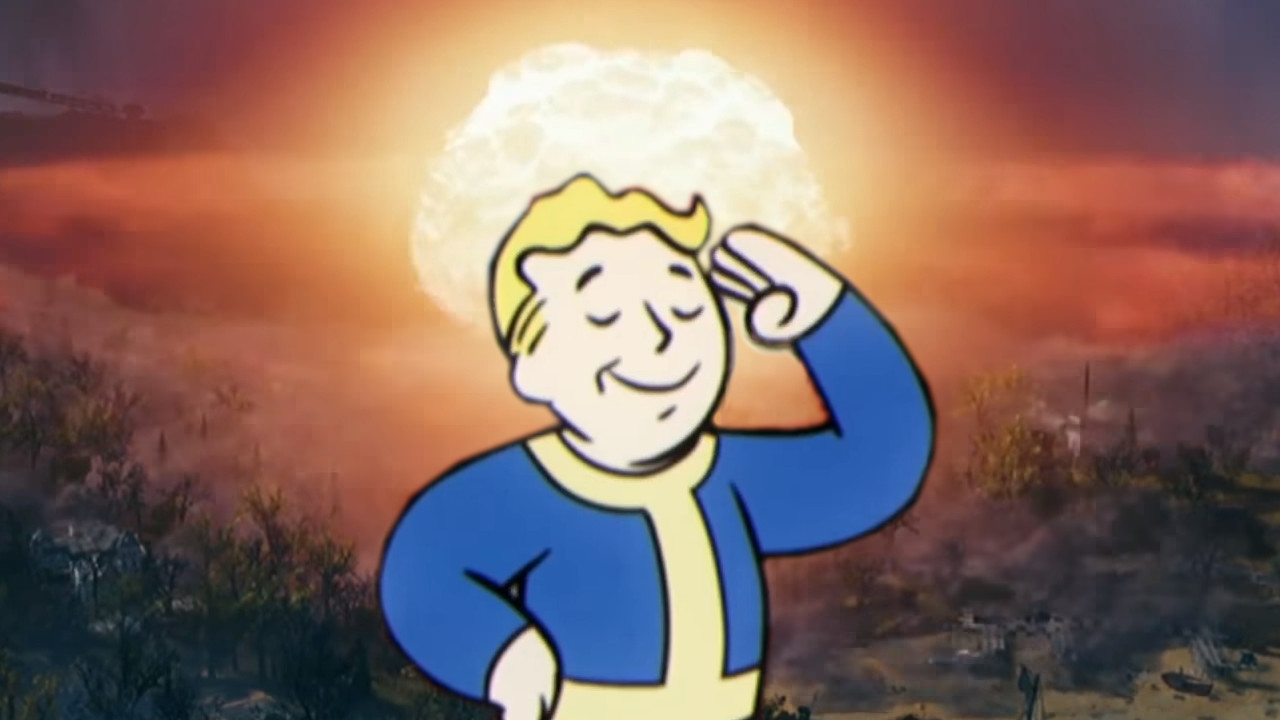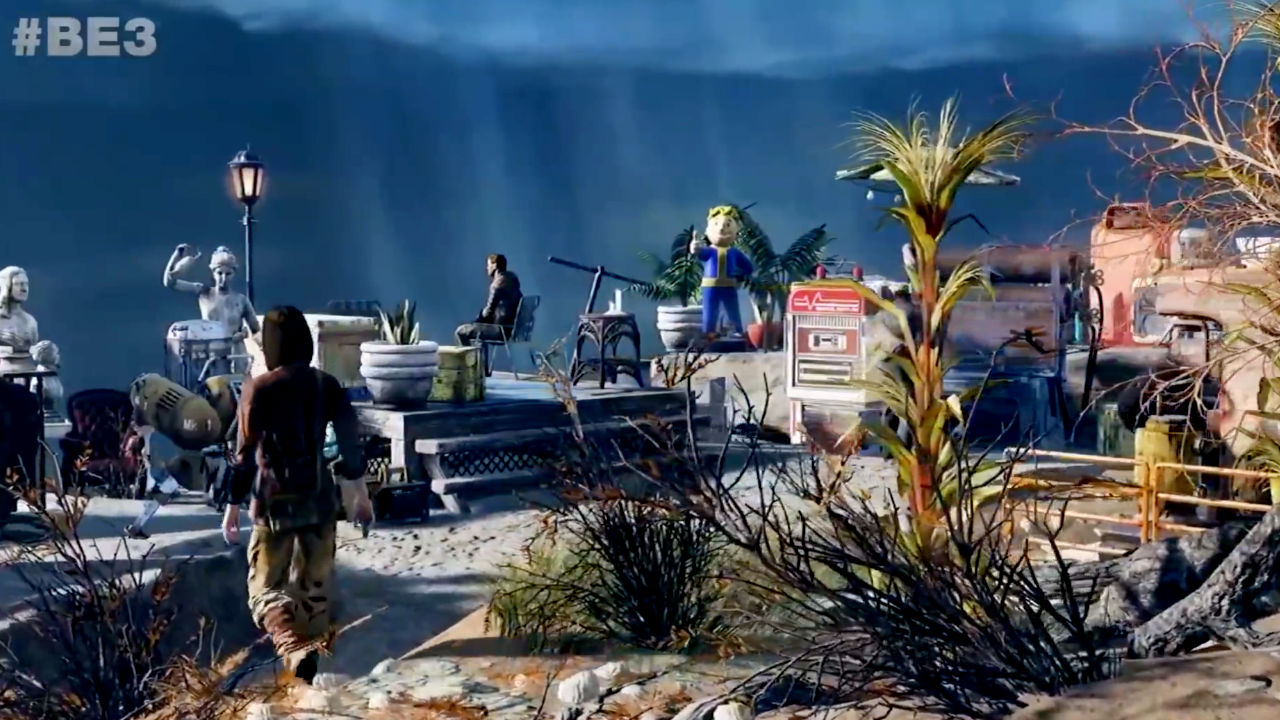Fallout 76 nukes explained: why they probably won't ruin your day but they'll still be super important
Fallout 76 nukes give players a countdown to escape and high-level challenges after that

Fallout 76 will be the first game in the post-nuclear role-playing series to let players launch their own full-scale nuclear weapons at will… but what does that mean for when you're actually in the game? Will high-level players monopolize missile silos to continually blow the hell out of each other in server ruining, definitely-not-cold war? Will no player-made settlement be safe from atomic hellfire in the Fallout 76 PvP scene?
Easy, easy! I know we're pre-conditioned to start panicking at the prospect of nuclear warfare, but this interview with Bethesda marketing boss Pete Hines should help assuage some of your anxieties. I mean, about Fallout 76, not about the actual thought of nuclear war, which remains f#@$ing abhorrent and terrifying. Here are the quick bullet points about how Fallout 76 nukes work, with more detail from the interview after that.
- To launch a nuke, you must first find pieces of launch codes out in the world.
- Once you have all the codes, you must fight your way into a launch facility.
- You can't target other players with nukes. Instead, you target 'specific parts' of the world.
- Players in the targeted area will receive a warning, giving them a chance to escape the blast.
- Once the nuke lands, that part of the world will temporarily be transformed into a high-level zone: monsters, loot, resources, and - duh - lots of radiation.
"You can't nuke each other," Hines explained. "You can nuke a specific part of the world. It's a massive map, it's four times the size of Fallout 4 so it's a really big space. But first of all, getting the ability to launch a nuke is not easy." Hines then explained how the nuke acquisition process works in Fallout 76, which is pretty much the same as you saw in the E3 gameplay reveal: you hunt down individual pieces of a launch code, put them together, then fight your way into a launch facility.
"And then you target a place on the map - you can't target an individual, I can't see you running around the map and go, 'Oh, I wanna nuke that guy.' So they're not easy to get, they're not just gonna be firing off every five minutes. And when a nuke is incoming in an area of the map, people get notified. So you know... Well, you could just stand there and not do anything, but you could also get the hell out of the way and then you won't get nuked."

Player-made settlements seem to have some degree of portability as well, you can probably keep all your stuff from getting wrecked too if you're on the ball. But if nukes are so easy for other players to avoid, why bother putting in all that effort to launch one? Turns out they're mostly useful for creating your own high-risk, high-reward areas.
"They create, for a period of time, a high-level zone," Hines said. "So that area where the nuke drops is gonna have some really rare resources, some of the better loot drops, some really tough creatures to fight. And it's obviously gonna be really heavily irradiated, so you don't want to just waltz in there unprotected. But it's a fun way to create different areas and different parts of the map that, for a period of time, will be these high-level zones."
Not sure how you feel about this new direction? Yes, Fallout 76 is an MMO, but here's why it could be the one for you.
Sign up to the GamesRadar+ Newsletter
Weekly digests, tales from the communities you love, and more
I got a BA in journalism from Central Michigan University - though the best education I received there was from CM Life, its student-run newspaper. Long before that, I started pursuing my degree in video games by bugging my older brother to let me play Zelda on the Super Nintendo. I've previously been a news intern for GameSpot, a news writer for CVG, and now I'm a staff writer here at GamesRadar.



